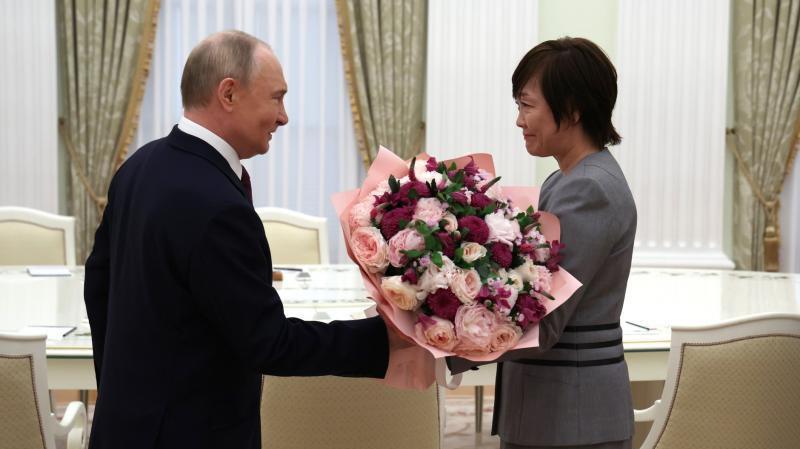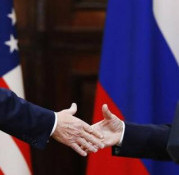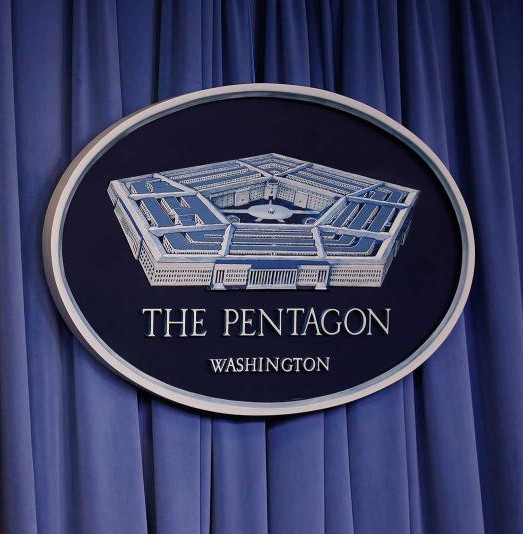
Amid the worst period in Japan-Russia relations since World War II, a striking and informal event took place on May 29. Russian President Vladimir Putin unexpectedly received Akie Abe, the widow of former Japanese Prime Minister Shinzo Abe, in the Kremlin.
Warm words were voiced on both sides, but it would be a stretch to call the meeting purely ceremonial.
President Putin stated, "[Shinzo Abe] contributed greatly to the development of Russian-Japanese relations. I had very warm personal relations with him <…> I saw that he sincerely sought the full restoration of Russian-Japanese cooperation and did much to achieve this <…> We are very grateful to him for his stance. We have always respected his work in this area, and we remember his contribution to the development of Russian-Japanese cooperation. His life was tragically cut short by a terrorist attack. But the memory of him, his activities, and his work is carefully preserved here in Russia."
Mrs. Abe, in turn, expressed nostalgia for Russia, a country she had visited multiple times with her late husband. Putin and Abe had met 27 times in total. She emphasized that her primary goal was to "express sincere gratitude that you so actively developed dialogue with my husband and pursued stronger relations between our countries."
Then she made a notable political remark: "Even after the onset of the challenging situation concerning Ukraine, my husband hoped to meet with you. Regrettably, circumstances prevented further meetings: his life was cut short. He always spoke of continuing this process as his legacy — the endeavor he sought to expand. I am not a politician and do not wish to address political matters. I will only say that Russia is a very important neighbor for Japan. It would bring me happiness if cultural exchanges and human contacts could develop between our nations even during this difficult period."
Her words carry significant weight in the current international context.
Akie Abe explicitly avoided political commentary, yet the subtext was unmistakably political. This raises the question: who was behind her trip to Moscow, and to what extent was it coordinated with official Tokyo?
No clarifications have been offered as of yet, but a similar precedent does exist. On December 15, 2025, US President-elect Donald Trump met with Akie Abe. Trump and Melania hosted her for lunch at their Mar-a-Lago residence in Florida. The First Lady later shared a photo of the meeting on Trump’s social media platform, Truth, captioning it: "It was a privilege to host Mrs. Akie Abe at Mar-a-Lago once again. We fondly remembered her late husband, former Prime Minister Abe, and honored his remarkable legacy."
Reports suggested Trump had personally invited Akie due to his close ties with the late Japanese leader, who was assassinated in 2022. CNN noted the meeting was arranged through direct communication between the widow and Trump, bypassing official channels.
This recalls Abe’s 2016 visit to the US immediately after Trump’s first election victory, where he successfully built informal rapport with the unconventional president — even playing golf with him.
Current Japanese Prime Minister Shigeru Ishiba attempted a similar move after the 2024 US elections, seeking a meeting with Trump following his Latin America tour. However, Japanese diplomats were rebuffed, with Tokyo citing "legal constraints" preventing the president-elect from meeting foreign leaders before his January inauguration.
The snub sparked controversy, as Trump later met with Argentina’s Javier Milei, Canada’s Justin Trudeau, and France’s Emmanuel Macron.
Whether Trump’s meeting with Abe’s widow was damage control or Tokyo’s informal maneuvering remains unclear. But Japan, anticipating turbulence in US relations under the new administration, had aggressively sought engagements with Trump and his renowned team members.
Today, Japan-US relations are in crisis. Trump’s aggressive tariffs on Japanese exports threaten to push the country into recession. Despite high-level visits (PM and Minister of Trade) and three rounds of working-level talks, no progress has been made. Prime Minister Ishiba is now pinning hopes on a sideline meeting with Trump at June’s G7 summit in Canada prioritizing tariffs — though expectations for concessions are low.
Tokyo’s frustration is mounting.
Influential Japanese media outlets have grown critical of Trump, while the government has hinted at selling off US Treasury bonds — a move that could destabilize American finances. Simultaneously, Japan is engaging in diplomatic overtures to China and casting doubt on funding Trump’s Alaskan gas megaproject, labeling it costly and inefficient.
Against this backdrop, the widow of Japan’s most prominent 21st-century leader arrives in Moscow, where a figure deeply respected in Japan’s establishment speaks of nurturing Russian-Japanese humanitarian ties. The US has vigilantly pressured Japan to maintain a hardline stance against Russia, but Shinzo Abe defied this, actively pursuing closer ties — partly to drive a wedge between Russia and China.
Dismissing Akie Abe’s Moscow visit as purely personal is difficult, especially given her earlier US trip during Japan’s diplomatic turmoil.
For Russia, relations with Japan are not contingent on third parties but stem from Japan’s global economic and strategic role. Yet Tokyo’s current anti-Russia stance has frozen official political and economic engagement for the foreseeable future. While Akie Abe’s visit may not signal a diplomatic thaw, it underscores the enduring complexity of these relationships.


